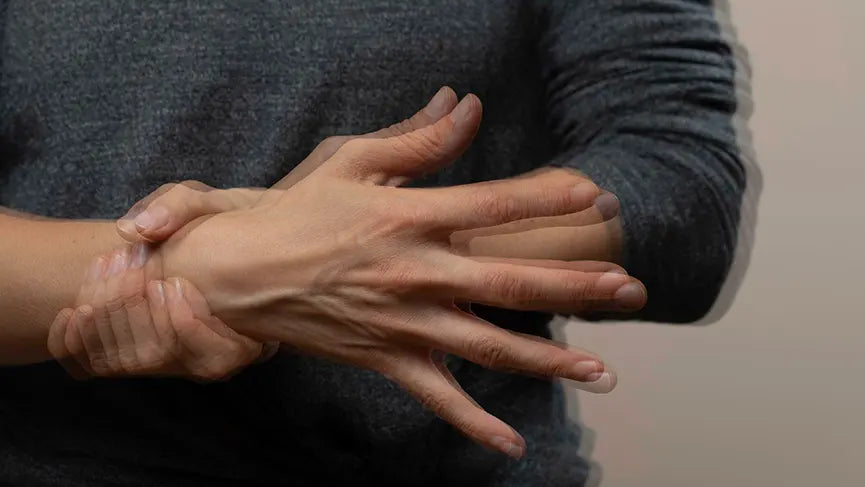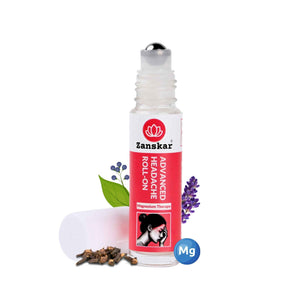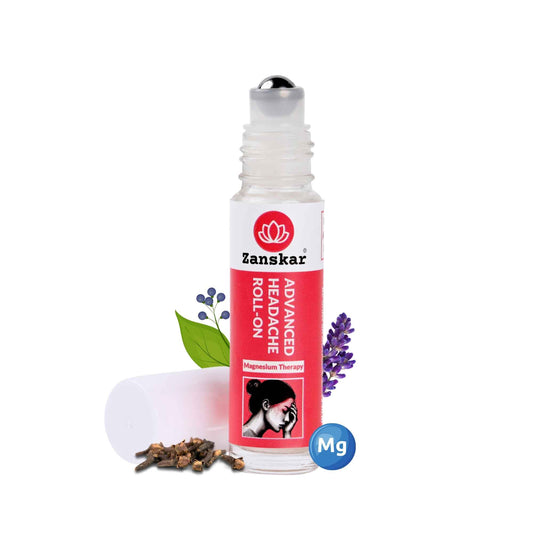
Brain and Nervous System: Causes of Hand Tremors

Hand tremors, or shaking, can be unsettling and often raise concerns about underlying health issues. While occasional shakiness may be harmless, persistent or severe tremors can point to various conditions affecting the brain, nervous system, or muscles.
From stress and anxiety to more serious neurological disorders like Parkinson’s disease, understanding the root causes of hand tremors is crucial. In this article, we explore the potential reasons your hands may be shaking, providing insight into the connection between these tremors and the brain and nervous system.
Why Does Your Hand Shake For No Reason?
There are many reasons why your hand may start hand shaking. Some of these may be temporary and some may be permanent. The shaking may happen at certain times and not at others, depending on how active or inactive you are.

How Much Hand Tremors Is Normal?
Tremors are usually considered normal if they are not severe enough to interfere with daily activities or cause pain. For example, mild shaking of your hands while holding something could be considered normal. However, if you have uncontrollable shaking of your hands while holding something, then it is not considered normal.
Reasons you may be having tremors
1. Essential tremor
This nerve disorder is the most common reason your coffee cup won't stay still while you hold it. It kicks in while your hands are doing something, but goes away when they're not. There's no clear cause, but it's sometimes traced to a change in a gene. If your symptoms are mild, you may not need treatment. If they get in the way of everyday tasks or your job, you may need medicine, occupational therapy, or surgery.
2. Overactive Thyroid (Hyperthyroidism)
Have you had your thyroid hormone levels checked lately? Shaky hands may be a sign of hyperthyroidism. This means your thyroid gland is working too hard and kicking your heart rate into high gear. You may also notice that you lose weight without trying, are sensitive to light, get a fast heartbeat, and have trouble sleeping. A simple blood test will help you and your doctor figure out what's going on.
3. Too Much Caffeine
Can't do without your morning coffee? Have a cup or two, then cut yourself off. Caffeine is a stimulant, so the same natural chemical that helps you wake up will also make your hands shake if you have too much. Coffee isn't the only culprit. You can also find caffeine in over-the-counter headache medicine, chocolate, and some sodas.
4. Alcohol Withdrawal
If you have an addiction to alcohol, you could get symptoms that include shaky hands when you quit. It starts as soon as 10 hours after your last drink and can last a few weeks. Some detox programs use medication to help you manage withdrawal symptoms.
5. Lack of Sleep
You can't expect a car to run if you don't give it fuel. And you can't expect your brain to send messages to all the right places without sleep. When you don't get enough shut-eye, it can cause your brain to mistakenly tell your hands to tremble. Luckily, you can snooze your way back to steady hands.
6. Low Blood Sugar
Your nerves and muscles are powered by blood sugar. When they don't get enough, they tell your hands to shake. Low blood sugar can be caused by diabetes, certain medications, too much alcohol, or not enough food. A doctor can help you narrow down what's happening and why.
7. Stress
When something stresses you out, like giving a speech or watching a scary movie, your nerves kick into overdrive. Your hands shake and your heart beats fast. The shakiness will go away when the stress does. Try stress relief techniques like deep breathing or meditation.
8. Certain Medications
Twitchy hands are a common side effect of many different types of prescription drugs. Among the most common are medicines for your mood, seizures, migraine, neuropathy, and asthma. Some antihistamines cause this problem, too.
9. Smoking
Though some people do it because they hope it will ease stress, smoking can cause anxiety. Nicotine, the addictive drug in tobacco, gets into your bloodstream and makes your heart beat faster. This can make you feel anxious and cause your hands to shake. Talk to your doctor to get ideas on how to quit tobacco.
10. Lack of Vitamin B12
B12 plays big role in keeping your nervous system healthy. If you don't eat meat or eggs, don't drink milk, or if you take certain medications, you might have lower-than-normal levels of this vitamin. This can cause your hands to shake or make your arms and legs feel numb and tingly. Your doctor can tell you if you need to take supplements.
11. Brain Disorders
If you've had a stroke or a traumatic brain injury, or the muscles in your hands may have a mind of their own.
Parkinson's is also associated with hand tremors that usually start on one hand, but over time may spread to the other. The main treatment for Parkinson's tremors is medication and sometimes surgery for better muscle control.
Multiple Sclerosis (MS) is another disorder that damages a coating on your nerves called myelin. When this happens, you may get symptoms that include shaking in your hands or other parts of your body. Medicine is the most common way to treat it.
What to do if you have hand tremors
The first step of management is to identify possible causes of tremors. If you can't rule out any possible cause, ask your doctor about it. The doctor will diagnose and prescribe suitable medication or occupational therapy as the case may be. As a general rule of priciple, also steer clear of caffeine, nicotine, or anything else that makes the symptoms worse.
Learn More About Zanskar Health
If you have joint or muscle pain that makes it hard to move, Zanskar offers the most advanced full stack pain relief solutions for you.
Now available to purchase, Zanskar® Advanced Pain Care Products have a unique formulation of natural bioactive ingredients and provide lasting relief from all kinds of headache that you can feel good about.
You can also gain access to therapeutic exercises and stretches for your condition by downloading the Zanskar Health physiotherapy mobile app. Additionally, you’ll have a personal care team to guide, support, and tailor our program to you, including behavioral and nutritional coaching.
Download our mobile app here 👉 download and track your exercise streak.
Medical Review: This article is written by Dr Nishtha Mittal (Senior Health Content Editor at Zanskar Health) and has been medically reviewed by the medical team at Zanskar Health. This article and its contents are provided for educational and informational purposes only and do not constitute medical advice or professional services specific to you or your medical condition.







